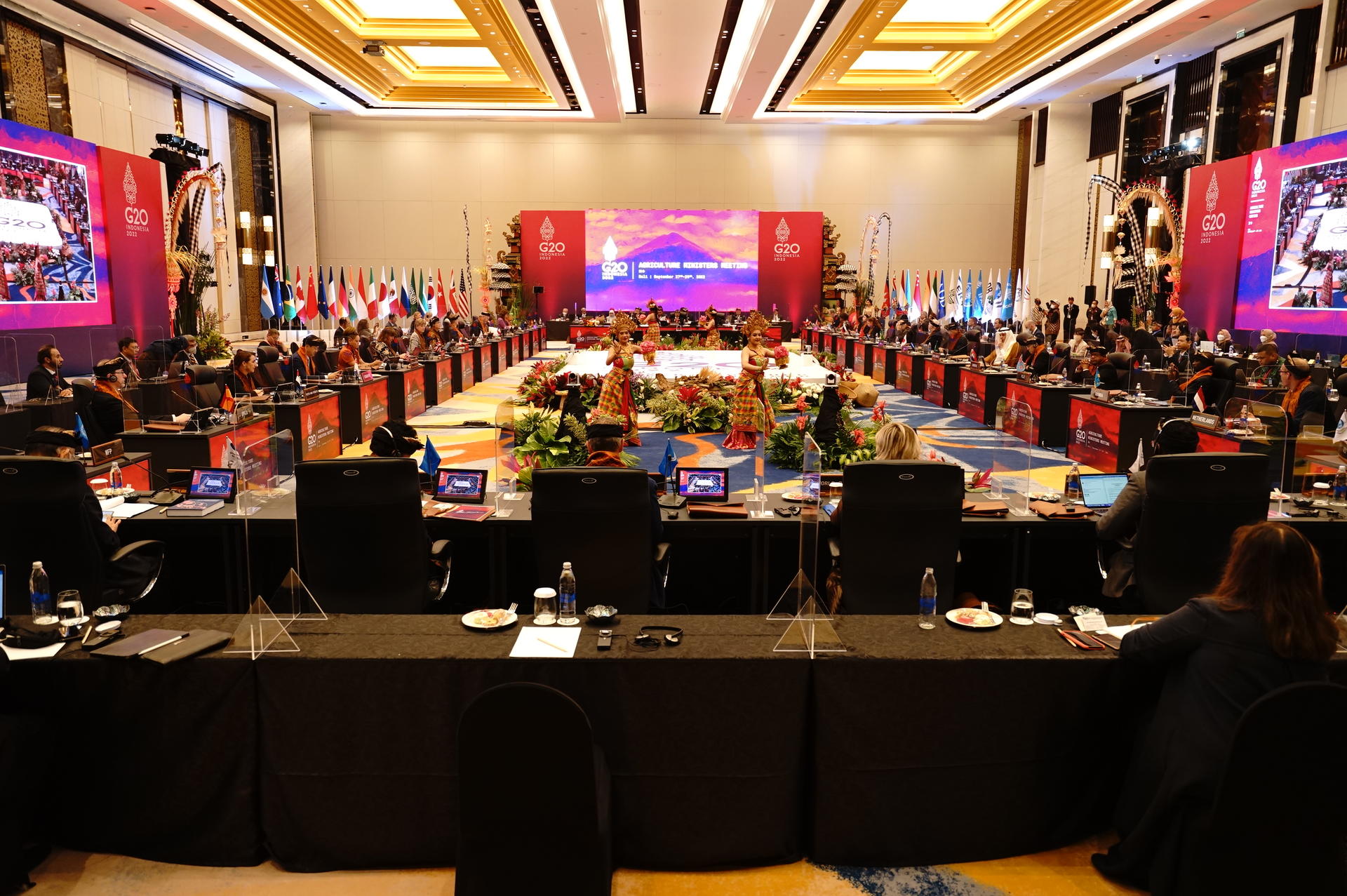Blog Indonesia G20 Presidency CGIAR at the G20 Global Forum on Digital Agriculture Transformation in Accelerating Women and Youth Entrepreneurship

Digital innovation and entrepreneurship have enormous potential to generate economic benefits for women and youth as well as leverage food systems transformation.
Under its G20 Presidency, the Government of Indonesia organized the Global Forum of the G20 Agriculture Ministers Meeting in Bali on 27 September 2022, with the participation of a CGIAR delegation led by Johan Swinnen, Managing Director of Systems Transformation CGIAR and Director General of the International Food Policy Research Institute, Gianpiero Menza, Senior Manager Partnerships & Innovative Finance at the Alliance/CGIAR and Rob Vos Director Market, Trade and Institutions at IFPRI/CGIAR. The G20 Global Forum served as a platform to discuss policies, training programs, strategies, and best practices to support women and youth entrepreneurship and ensure the digitalization of the agriculture sector.
In recent years, technological changes in agriculture and food value chains have greatly enhanced yields, efficiency, yields, and profitability. The digital revolution that is underway is already impacting all stages of domestic and global food value chains. However, not all food system actors stand to benefit from the gains and opportunities that digital innovation brings. Women and youth often face hurdles in accessing digital applications and related business opportunities, hindered by regulatory bottlenecks, gendered cultural norms, or limited means to acquire or invest in such innovations. In low- and middle-income countries, women are 7% less likely to own mobile phones and 15% are less likely to use mobile internet. From a business standpoint, 90% of start-ups seeking venture capital investments are founded by men, reflecting the large gender gap.
Dr. Johan Swinnen (CGIAR) intervened in the first session that focused on “Leveraging Digital Agriculture and Revitalizing the Role of Women and Youth towards Agriculture Entrepreneurship”. The session was moderated by Máximo Torero, Chief Economist at FAO and other panellists included high-level experts from IFAD, GIZ, and the Ministry of Agriculture, Forestry and Fisheries of Japan.
CGIAR research has demonstrated how digital innovation and entrepreneurship can empower women and improve their livelihoods. Actively engaging youth in the development and application of digital technologies has also proven to be an effective way to accelerate the adoption of digital innovations and modernize farming practices and food delivery systems. Facilitating the creation of tech-savvy, youth-led start-ups is one important vehicle to this end.
In this regard, Dr. Swinnen cited CGIAR’s work as part of the Accelerate for Impact Platform (A4IP), an in-house Venture Space aimed at supporting incremental and transformational innovations by bridging science and entrepreneurship. In his words: “through this platform, CGIAR is taking action to encourage early-stage investment in ideas and ensure stronger relationships and deployment among partners, while cultivating opportunities for emerging young entrepreneurs in low and low middle income countries”.
Dr. Swinnen called upon all members of the G20 to take actions to create a better enabling environment for the further development, adaptation and adoption of digital innovations in food supply chains and lift barriers to access for women and youth. He specifically recommended governments should increase public resources for R&D and facilitate science is brought from lab to market at an affordable cost for small-scale businesses. Finally, he stressed the importance of implementing proper regulation and competition policies to avoid large tech companies capturing excessive market power and to safeguard cybersecurity.
Digital innovations and entrepreneurship can represent the driving force of the future. Collaborative, collective, and holistic actions steered by the science community, businesses, and governments are necessary to foster increased business opportunities for small-scale entrepreneurs, women, and youth, and ensure that these social groups are not excluded from the gains digital innovations can bring.
